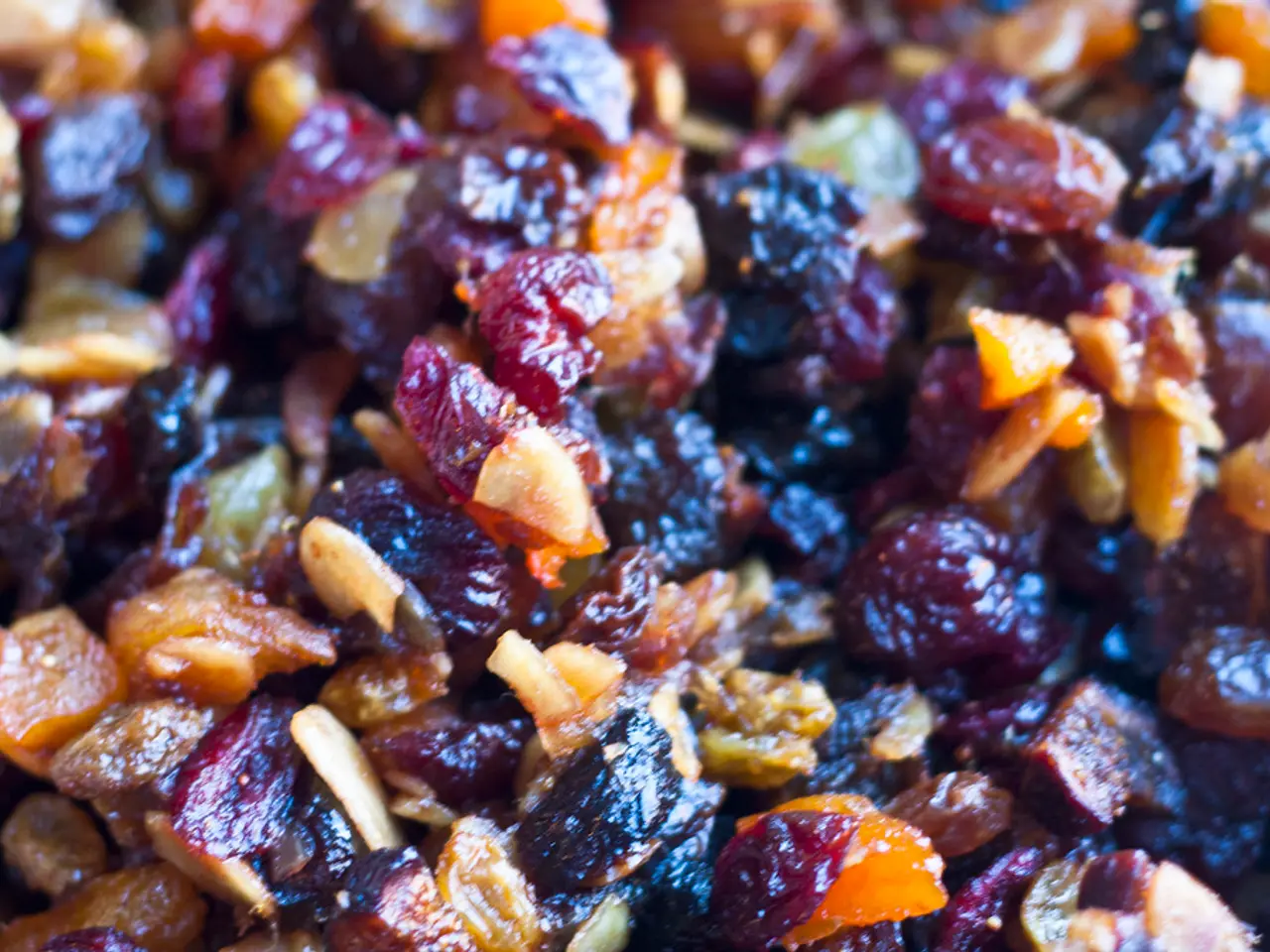Essential insights into pregnancy-induced cholestasis revealed: a detailed overview.
In the later stages of pregnancy, a liver condition known as cholestasis can cause concern for both mother and baby. This condition, also called intrahepatic cholestasis of pregnancy (ICP), is characterised by a build-up of bile acids in the bloodstream, leading to severe itching, especially on the hands and feet.
To diagnose ICP, doctors consider an individual's signs and symptoms, perform a physical examination, and carry out blood tests to measure total serum bile acid levels, alanine aminotransferase, bilirubin, and aspartate aminotransferase levels.
Treatment for ICP aims to relieve symptoms and prevent potential complications. The primary treatment is ursodeoxycholic acid, a bile acid that helps the liver to function more effectively. In some cases, doctors may also use 1% menthol cream to provide temporary relief from itching.
ICP can lead to problems with absorbing fat-soluble vitamins (A, D, E, and K), but these issues usually resolve within a few days after giving birth. However, there is an increased risk of vitamin K deficiency, which may lead to clotting problems and an increased risk of bleeding. To mitigate this, vitamin K supplements are often recommended during pregnancy.
The long-term effects of ICP primarily impact the fetus more than the mother. The condition increases the risk of stillbirth, fetal distress, preterm birth, respiratory distress syndrome (RDS), and meconium-stained amniotic fluid. The risk of stillbirth is higher in people with ICP, and the risk of preterm birth for the fetus is also significantly increased.
For the mother, the condition is characterized by intense but temporary itching and possible clotting changes during pregnancy. There are generally no long-term liver or health consequences for the mother once the pregnancy is over.
Active monitoring and appropriate medical management during pregnancy are crucial to minimise risks to the baby and ensure the mother’s safety. Regular blood tests to monitor liver function and blood bile levels, as well as non-stress tests to check fetal health, are essential.
While there is no definitive evidence to support the use of natural remedies like dandelion root and milk thistle for ICP, maintaining a healthy, balanced diet with plenty of whole fruits and vegetables can help reduce the risk of complications during pregnancy.
Soaking the affected areas of skin in lukewarm water, dabbing with baking soda or apple cider vinegar, and applying coconut oil after a bath may provide temporary relief from itching. However, it is important to check with a doctor beforehand to ensure any natural remedy is safe and to consult a doctor if symptoms get worse.
Ultrasound scans may be used to look for abnormalities in the liver and monitor fetal health and development. In severe cases, antibiotic plasmapheresis, a treatment that removes harmful substances from the blood, may be used.
Cholestasis usually occurs late in the second trimester or during the last trimester of pregnancy. In some cases, doctors may recommend induced labor before 39 weeks if cholestasis is severe to reduce the risk of complications for the baby.
In conclusion, while ICP can cause serious complications for the fetus, the long-term health effects after birth are minimal when properly managed. For the mother, the condition is characterized by intense but temporary itching and possible clotting changes during pregnancy, with no established long-term adverse effects after delivery.
- Pregnancy's later stages can be concerning due to sclerosis conditions like intrahepatic cholestasis of pregnancy (ICP).
- ICP is characterized by a build-up of bile acids in the bloodstream, leading to severe itching and is particularly noticeable on the hands and feet.
- Doctors diagnose ICP by considering symptoms, conducting physical examinations, and blood tests to measure specific levels.
- The primary treatment for ICP is ursodeoxycholic acid, a bile acid that helps the liver function more effectively.
- In some cases, 1% menthol cream is used to provide temporary relief from itching.
- ICP can lead to problems with absorbing fat-soluble vitamins (A, D, E, and K), but these issues usually resolve after giving birth.
- There's an increased risk of vitamin K deficiency in ICP patients, which may lead to clotting problems and an increased risk of bleeding.
- To mitigate this risk, vitamin K supplements are often recommended during pregnancy.
- The long-term effects of ICP primarily impact the fetus, increasing the risk of stillbirth, fetal distress, preterm birth, respiratory distress syndrome (RDS), and meconium-stained amniotic fluid.
- The risk of stillbirth is higher in people with ICP, and the risk of preterm birth for the fetus is also significantly increased.
- For the mother, the condition is characterized by intense but temporary itching and possible clotting changes during pregnancy.
- There are generally no long-term liver or health consequences for the mother once the pregnancy is over.
- Active monitoring and appropriate medical management during pregnancy are crucial to minimise risks to the baby and ensure the mother’s safety.
- Regular blood tests and non-stress tests are essential to monitor liver function, blood bile levels, and fetal health.
- While no definitive evidence supports the use of natural remedies like dandelion root and milk thistle for ICP, maintaining a healthy, balanced diet can help reduce the risk of complications during pregnancy.
- Soaking the affected areas in lukewarm water, baking soda, or apple cider vinegar, and applying coconut oil may provide temporary relief from itching.
- Ultrasound scans can be used to look for abnormalities in the liver and monitor fetal health and development.
- In severe cases, antibiotic plasmapheresis may be used to remove harmful substances from the blood.
- Cholestasis usually occurs late in the second trimester or during the last trimester of pregnancy.
- In severe cases, doctors may recommend induced labor before 39 weeks to reduce the risk of complications for the baby.




